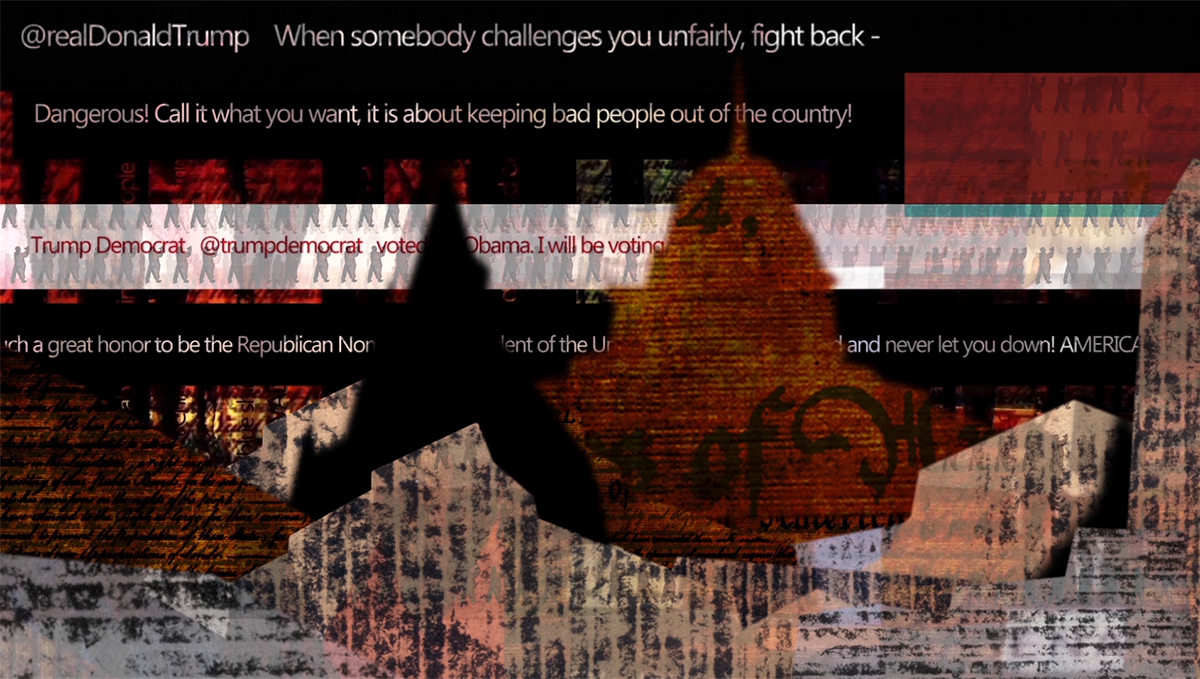The Four Freedoms in Today's America
SPEECH.
RELIGION.
FEAR.
WANT.
We The People
This video piece is part of the exhibit, Reimagining the Four Freedoms, currently on view at the George Washington University Museum and Textile Museum with its companion exhibit, Enduring Ideals: Rockwell, Roosevelt & the Four Freedoms.
For more information and the exhibit's touring schedule please visit: rockwellfourfreedoms.org.
What does freedom look like in America?
Eight months after his Four Freedoms speech, Franklin Delano Roosevelt signed Executive Order 9066 authorizing the internment of 120,000 Japanese Americans. My grandparents were among those American citizens interned for three years, and illustrated for me the complicated reality of American ideals.
Today's America is again tangled in contradiction as the President defends American rights by means of policies that deny certain "Others" various freedoms. This interpretation of the Four Freedoms - in which some people have access at the expense of others - has been met with protest across the country. Since President Trump’s election, I have visited rallies large and small in my hometown of Boston to document the energetic, emotional messages of the people through drawings and recorded audio.
For the exhibit, Reimagining the Four Freedoms, organized by the Norman Rockwell Museum, I combined reportage drawings, audio, and video footage of various protesters and politicians, into a short animated piece reflecting recent patterns of interpretation of the Four Freedoms.
In a kaleidescope of convictions and beliefs, just as there was in 1942, nationalism collides with idealism, and different versions of "truth" are expressed in the name of free speech and protection from fear or want.
The emotional landscape of recent political events to me illustrates what freedom looks like today: a continuously unfolding, flawed conversation about identity rooted in an insistence on the universal right to the Four Freedoms.
Somewhere in the space between our ideals and reality, the potential of hope persists.
Descendents of incarcerated Japanese Americans protest immigration bans at Tule Lake, CA, site of the Tule Lake Segregation Center. 8/2018
"For there is nothing mysterious about the foundations of a healthy and strong democracy.The basic things expected by our people are simple:
they are equality of opportunity, jobs, security, the ending of special privilege for the few, the preservation of civil liberties for all...
These are the basic things that must never be lost sight of in the turmoil and unbelievable complexity of our modern world."
-FDR, 1942





